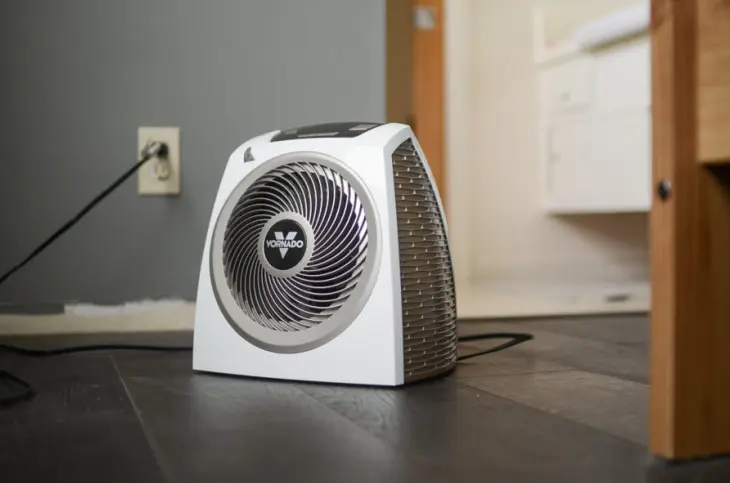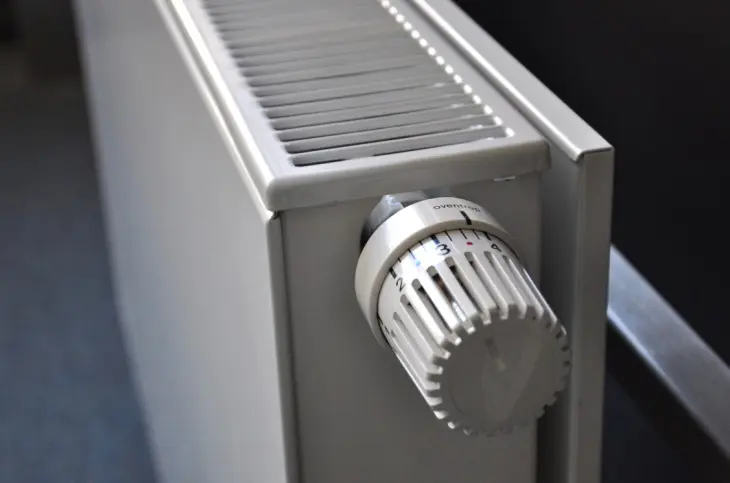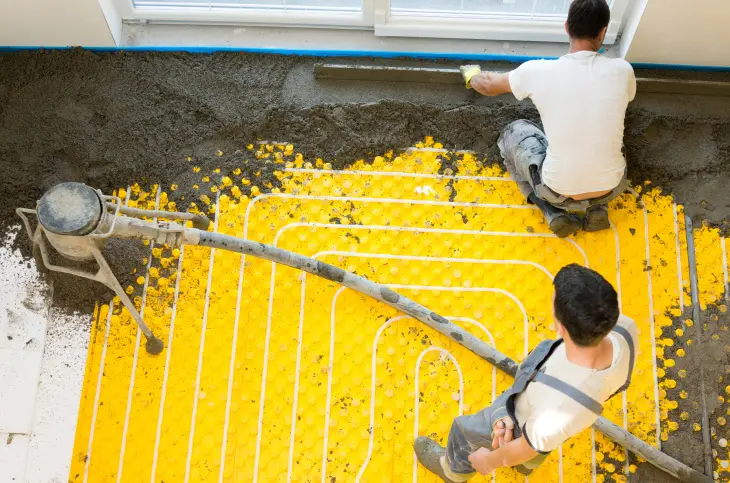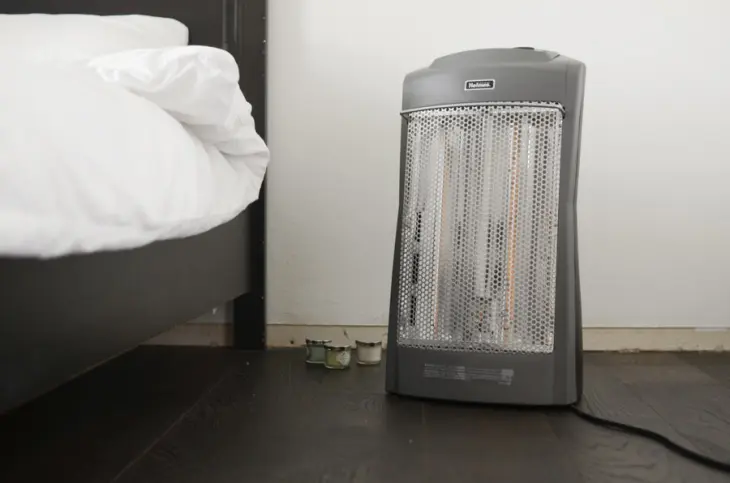The age-old money saving debate: Space Heater vs Central Heat. What’s the better option? It depends on a few different factors. Where you live, the house you live in, and the type of central system you have all influence your heating costs. So if you want to know what’s right for you, keep reading to find out.
My uber frugal husband loves the cold, which is tough for him because we live in Florida. So in addition to loving the cooler temperatures of winter, he thinks turning the furnace on is a waste of money.
Meanwhile, I’m over here frozen solid in two sweatshirts and long johns.
Thankfully for me, he knows what wrath awaits him if I wake up in the middle of the night shivering, so we keep the heat at a moderate temperature. But I can’t help but wonder if a space heater is a more cost-effective option.
There’s no shortage of information about it on the internet. Heating is the largest energy expense in the average home accounting for about 45% of energy bills.
But with so many updates in heating over the years, how can you be sure that information is still accurate? So I wanted to do some research to determine the different space heater vs central heat cost breakdowns. Hopefully, this will help you determine if you’re on the fence too.
In this guide... [hide]
How to Save Money with a Forced Air Heating System
Forced-air heating systems are one of the most common heating methods. It’s compatible with a furnace, heat pump, or solar energy heat sources. Furnaces are the most common heat source for forced-air. Furnaces continue to evolve and become more energy efficient but cost still varies based on electricity prices and fuel rates.
A furnace with an Annual Fuel Utilization Efficiency (AFUE) rating of 80 or above will be the most energy efficient and will be cost-effective enough to heat a small house without any aid from a space heater. If you have a large house or older furnace, look up your electricity cost in cents per kilowatt-hour.
According to Smarter House, a 1500 watt plug-in space heater will cost 1.5 times your electricity cost in cents per kilowatt-hour. Average nation rates are about 12 cents per kWh so that heater would cost 18-cents per hour to run.
If the cost of running a space heater every night is less than heating the whole house, then it’s cost-effective. Remember, if you do decide to run your electric space heater, running it as little as possible is the best way to save money.
How to Save Money with a Radiant Heating System
There are two types of radiant heating systems, steam, and direct transfer. Steam radiant systems are some of the oldest systems and heat from a boiler to move heat into the home through baseboard heaters.
If your steam heater is older, you might also want to bleed trapped air from the hot water radiator to free the flow of hot water in the system and help it work more efficiently. Otherwise, a space heater could help offset the costs of the inefficient system.
Direct transfer radiant heating utilizes aluminum panels in the floor, walls or ceilings to warm the area. It can be powered by a boiler, heat pump, or solar energy heat source. Floor heating is the most popular option and is a relatively new form that’s touted as being more efficient than forced-air and preserving air quality in the home.
Although expensive to install, direct systems can be controlled room to room and save a lot of money long-term. So if your house has one using a space heater would definitely cost you more than turning up the temperature of your boiler.
How to Save Money with a Heat Pump
Heat pumps are a central heating source for forced air and radiant heating systems. They are a great choice if you’re looking to upgrade because they’re extremely energy efficient and can be reversed to cool a home in the summer!
The drawback to the heat pump is it’s more expensive to install and does not operate optimally in extremely low temperatures. But it can eliminate the need for a separate air conditioning unit and can transfer excess heat to your hot water tank (lowering your water bill) so weigh your options.
If you’re fortunate enough to have an ambient air heat pump you most likely won’t need a space heater because your heating system is generally energy efficient and you already live in a warmer climate. That being said you should definitely have one on hand in case the temperature dips below freezing in which case the heat pump will not heat the house enough.
Another type of heat pump is a ground source or geothermal system. These can be used in colder climates but are more expensive to install and may not be as cost-effective even with the energy savings.
How to Save Money with a Space Heater
Most professionals will recommend using space heaters as a last resort. Central heating is more efficient than a space heater when heating the same amount of space. But if something has malfunctioned with your system and you can’t afford to fix it or you’re renting, a space heater can come in handy to save on costly bills and repairs.
Space heaters will save you money if you use only one and only in one room. Using three space heaters in three different rooms all day and all night is going to cost you more than just cranking up the heat.
The Energy Department estimates that the cost to heat an entire home with electric space heaters cost 43% more than a gas furnace. Using a space heater in your bedroom only while you sleep is a practical way to use a space heater and won’t make much of a dent in your electricity bill.
How to Save Money with Any Heating System
Whatever method you go with remember the general tips to keep your system running efficiently and your costs low. Monitor your heating system throughout the year and follow your recommended upkeep schedule even when it’s not in use.
- Clean or replace filters monthly.
- Remove any dirt or corrosion from the system.
- Clean the heat exchanger.
- Make sure air ducts and heating pipes are properly sealed.
Use a programmable thermostat to set the temperature from anywhere. These are so helpful to eliminate that dreadful feeling when you get to work and realize you left your heat on full blast. You can also open your curtains to let the sunlight naturally heat your home.
If your house still isn’t getting warm enough space heaters are an economical short-term fix but not a long-term solution. Save up to address the root problems in your home so your money doesn’t melt away with the snow come April.
Like this article? Pin it!





